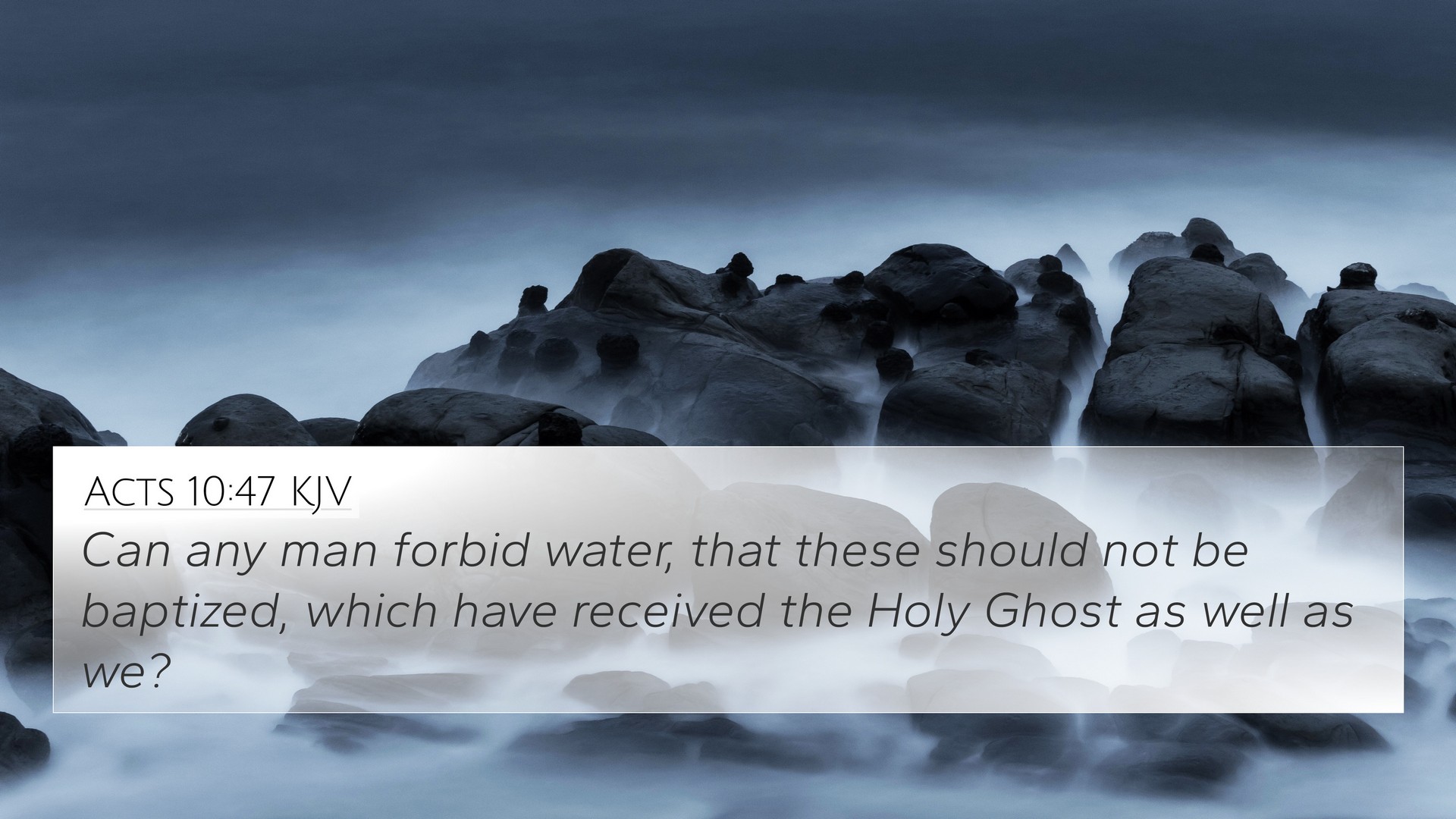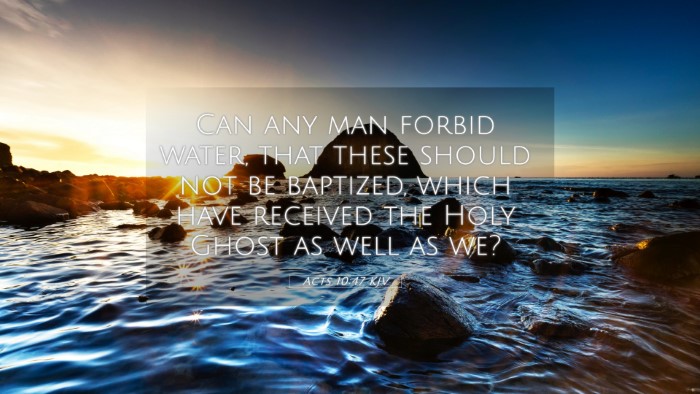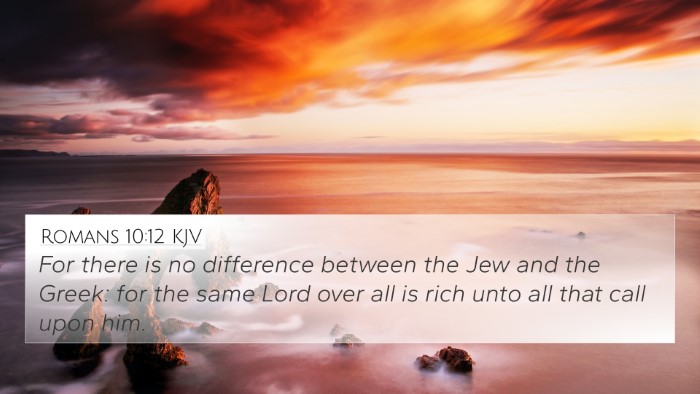Understanding Acts 10:47
The verse Acts 10:47 presents a pivotal moment in the early church, marking the inclusion of the Gentiles into the faith. In this detailed exploration, we will utilize insights from various public domain commentaries, including those of Matthew Henry, Albert Barnes, and Adam Clarke, to provide a comprehensive meaning of this scripture.
Verse Overview
Acts 10:47 states: "Can anyone withhold water for baptizing these people, who have received the Holy Spirit just as we have?”
Contextual Background
This verse occurs in a well-known narrative where Peter has received a vision indicating that the Gospel is not solely for the Jews but also for the Gentiles. The significance of this moment is monumental as it encapsulates the inclusive nature of Christianity.
Commentary Insights
-
Matthew Henry:
Henry emphasizes Peter's challenge to the Jewish customs and traditions by affirming that Gentiles can receive God's grace just like the Jews. Baptism is presented as a necessary act following the reception of the Holy Spirit, highlighting the importance of outward confession and initiation into the faith community.
-
Albert Barnes:
Barnes elaborates on the incredulity surrounding the inclusion of Gentiles, pointing out that the outpouring of the Holy Spirit was a clear sign of God's approval. He argues that this represents a shift from the exclusivity of the old covenant to the universal offer of salvation through Christ, applicable to all humanity.
-
Adam Clarke:
Clarke notes that the phrase "received the Holy Spirit just as we have" signifies equality in the experience of salvation. It reinforces the idea that the Holy Spirit's gifting transcends cultural and racial boundaries, inviting all believers into a deeper communion without prejudice.
Theological Implications
Acts 10:47 challenges believers to reconsider preconceived notions of who can receive God's grace. This inclusivity is foundational to the mission of the Church and speaks to the transformative power of the Gospel that breaks social and racial barriers.
Cross-References
To gain a deeper understanding of Acts 10:47, we can connect it with several other verses that highlight similar themes of inclusion and the work of the Holy Spirit:
- Matthew 28:19-20: The Great Commission emphasizes making disciples of all nations.
- Galatians 3:28: Paul declares that in Christ, there is neither Jew nor Gentile, emphasizing equality among believers.
- Acts 2:17-18: Peter’s quote from Joel about the outpouring of the Spirit on all people, reinforcing inclusivity.
- Romans 10:12: Affirms that there is no distinction between Jew and Gentile; the same Lord is Lord of all.
- Ephesians 2:14-16: Discusses the breaking down of the dividing wall between Jews and Gentiles.
- John 3:16: God’s love for the world illustrates the universal invitation to salvation.
- 1 Corinthians 12:13: All believers are baptized into one body by the Holy Spirit, erasing cultural divisions.
Conclusion
Acts 10:47 opens up a dialogue about the nature of God's grace and the wider application of the Gospel message. By engaging with this verse alongside its cross-references, believers can better understand the central Christian tenet of inclusion, affirming that all are welcomed into God's family through faith and the work of the Holy Spirit.
Further Study Recommendations
To delve deeper, readers are encouraged to explore:
- Tools for Bible cross-referencing to find related scriptures.
- Utilizing a Bible concordance for thorough studies on inclusivity themes.
- Engaging in cross-reference Bible study methods to deepen understanding.










